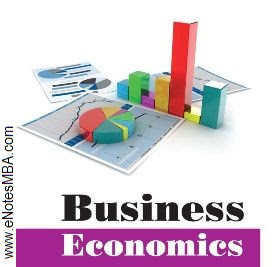PhD in Business Administration - Economics: Introduction, Admission, Registration, Eligibility, Duration, Fees, Syllabus 2024

Introduction:
A PhD in Business Administration with a specialization in Economics is designed for individuals who aspire to delve deep into the economic theories and their applications in the business world. This program prepares students for a career in academic research, policy analysis, and strategic decision-making in various economic sectors.
Admission Process:
- Application Preparation: Gather all necessary documents such as academic transcripts, a statement of purpose, and recommendation letters.
- Entrance Exams: Score well on GMAT or GRE, with a strong emphasis on the quantitative sections.
- Interviews: Some programs require interviews to understand the applicant's research interests and motivation.
- Research Proposal: Submit a detailed research proposal that aligns with the faculty's expertise and the program’s focus.
- Admission Offers: Review and accept offers from institutions that best fit your academic and professional goals.
Eligibility:
- Master’s Degree: Typically, a master’s degree in economics, finance, or a related field is required.
- Strong Analytical Skills: Demonstrated ability through coursework or professional experience.
- Research Experience: Prior research, particularly with publication, is highly beneficial.
- Quantitative Proficiency: Strong background in mathematics and statistics.
- Language Skills: For non-native speakers, proficiency in English is a must.
- Professional Experience: Relevant work experience in economics or finance can strengthen the application.
Completion Time:
The program generally takes 4-6 years to complete, depending on the student’s research progress and dissertation length.
Career Opportunities:
- Academic Professor: Teach and conduct research in universities.
- Economic Consultant: Provide expert analysis for businesses and government agencies.
- Chief Economist: Lead economic research and strategy in corporations or government.
- Policy Analyst: Develop and evaluate policy for public or private sectors.
- Financial Analyst: Analyze economic trends to guide investment decisions.
Syllabus:
- Advanced Microeconomic Theory: In-depth study of consumer and producer behavior and market structures.
- Macroeconomic Theory: Analysis of economic aggregates and government policies.
- Econometrics: Application of statistical methods to economic data.
- Development Economics: Strategies for economic development in various contexts.
- Behavioral Economics: The study of psychological influences on economic decisions.
Internship Opportunities:
- Government Agencies: Practical experience in national economic policy planning.
- International Organizations: Work with entities like the IMF or World Bank.
- Corporate Internships: Experience in corporate strategy and market analysis.
- Research Institutes: Engage in cutting-edge economic research.
- Non-Profit Sector: Apply economic analysis to social and development issues.
Scholarships and Grants:
- University Fellowships: Tuition waivers and stipends for promising PhD candidates.
- Private Foundations: Grants for specific research areas in economics.
- Government Scholarships: Funded opportunities for studies in priority economic areas.
- Corporate Sponsorships: Support for research relevant to the industry’s needs.
- International Scholarships: For study abroad programs or collaborative international research.
FAQs:
What is the focus of a PhD in Economics within Business Administration?
It focuses on applying advanced economic theories to solve business and economic problems.
What skills are crucial for success in this program?
Strong analytical, mathematical, and research skills are essential.
Can I work while completing my PhD?
Yes, many programs offer part-time options or executive tracks for professionals.
What are typical dissertation topics?
Topics may include international trade impacts, financial market behaviors, or economic policy analysis.
How do I choose the right program?
Look for programs with faculty interests aligned to your research goals and with strong career placement records.
